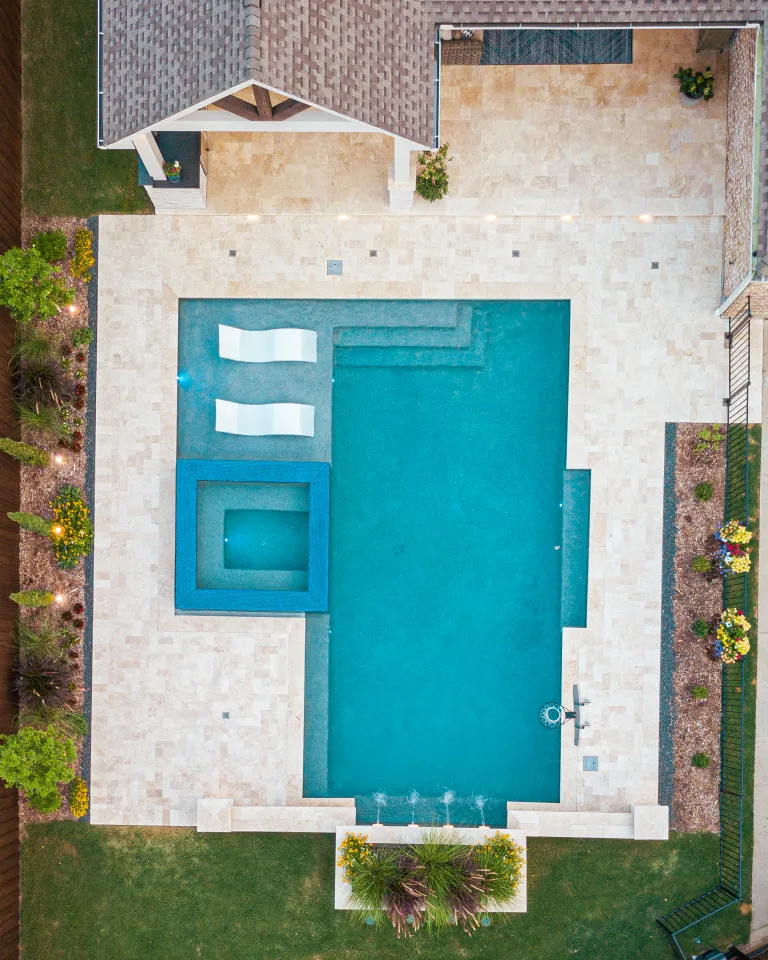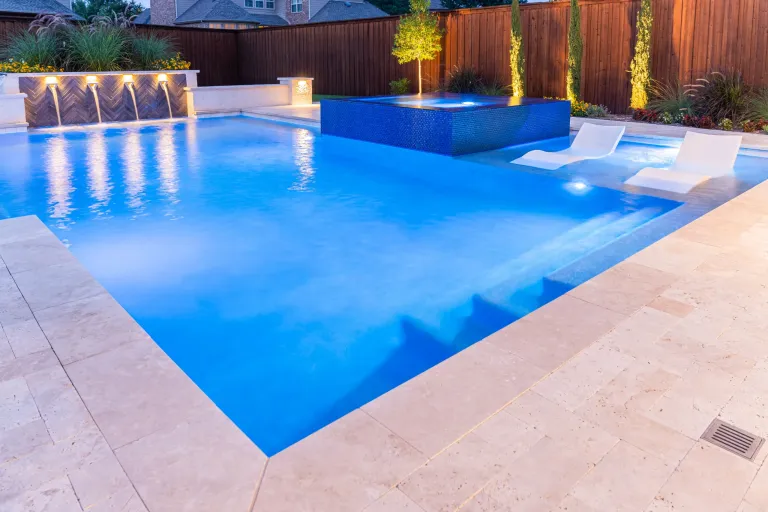
Yankees vs. Red Sox, Nike vs. Adidas, McDonald’s vs. Burger King. For decades, these great rivalries have shaped popular culture. But one of the biggest rivalries can be found in your own backyard.
The debate between saltwater and chlorine swimming pools is a long and complicated one. Both methods of sanitizing have their pros and cons depending on a number of factors, but if you’re debating on one to pick, here’s what you should know.

SALTWATER
Nothing feels quite as good as jumping into a saltwater pool. With softer, more natural water compared to the more chemically treated chlorine, it’s no secret that saltwater pools are better for your skin, hair, and eyes. It’s also generally easier and safer to store salt over chlorine, and it requires less maintenance on a day-to-day basis.
Despite seeming like the opposite of chlorine, saltwater pools actually use chlorine to keep your pool clean. Rather than using tablets or chemicals to treat the water, saltwater pools use a salt-chlorine generator to turn the salt in the water into chlorine. It sounds much more complicated than it actually is, and it usually just takes adding salt to the pool and letting the generator do the work for you.

Why isn’t saltwater the overwhelming favorite then? Well, these benefits come at a price. Saltwater pools are generally more expensive to start but become less expensive to maintain over time, which is the inverse of chlorine. You’ll also want to test the pH of the pool at least once a week using testing strips or electronic meters to ensure the water is being sanitized properly. Saltwater is also corrosive, meaning it can slowly eat away at lighting and surfaces
Also, you might be worried about the taste of a saltwater pool, thinking that it’s similar to the ocean. Luckily, saltwater pools have roughly one tenth the saline of the ocean, meaning you won’t even taste a thing.
CHLORINE
When many think of backyard swimming, they’re usually thinking of chlorine pools. The distinct chlorine smell that many have a love/hate relationship with is as synonymous with summer as grilling and fireworks.
It’s hard to beat the guaranteed cleanliness that chlorine brings. It’s easier and cheaper to install, and because it’s so popular, you’ll always be able to find someone to fix it in case of a major malfunction. It’s also easy to maintain specific chemical levels and won’t corrode surfaces the way saltwater can.

However, chlorine has its own drawbacks. As mentioned earlier, not everyone is a huge fan of the smell and irritation it can leave on your skin, hair, and eyes. They also need to be shock treated often in order to maintain correct chlorine levels and prevent the production of chloramines, which is the chemical that leads to skin irritation, allergy, or asthma symptoms some feel after swimming.
(Also, if you have bleached or dyed blonde hair, it might be best to skip the chlorine unless you’re going for a lovely shade of green.)
If you’re willing to spend the money upfront, saltwater might be your choice. If you’re worried about maintenance and correctly cleaning the pool, chlorine might be the way to go. Regardless of which method you choose, your pool will be the place to be for many summers to come.